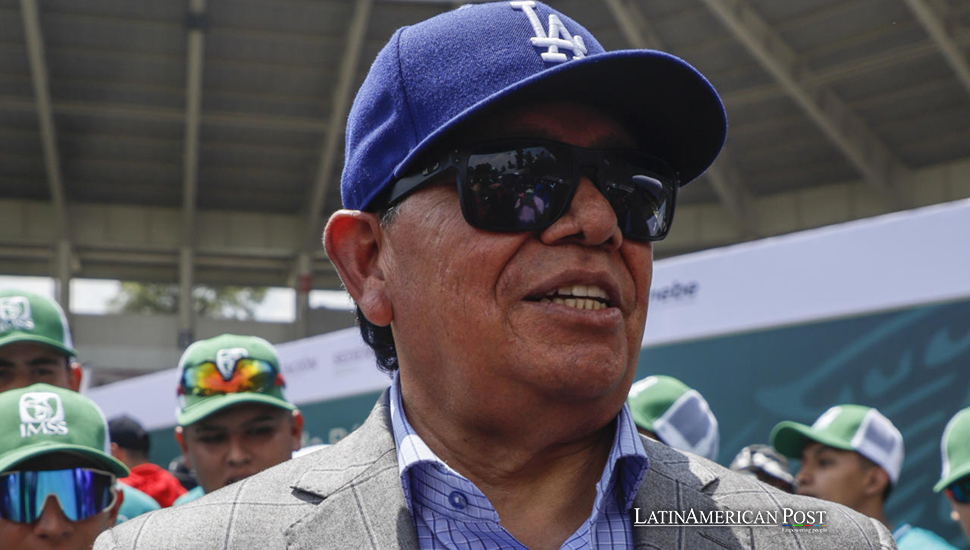Fernando Valenzuela, Mexican Pitching Legend, Dies at 63

Fernando Valenzuela, the left-handed Mexican pitcher who became a Los Angeles Dodgers sensation at 20 years old with his iconic screwball, passed away at 63. His incredible career, marked by “Fernandomania,” transformed the baseball world and transcended borders.
The Birth of Fernandomania
When Fernando Valenzuela stepped onto the mound for the Los Angeles Dodgers in 1981, baseball would never be the same. His unorthodox windup and signature screwball captured the imagination of fans on both sides of the U.S.-Mexico border. With a quirky motion that included looking skyward as his arm descended, Valenzuela dazzled in his first eight starts, winning every single one and pitching five shutouts. His earned run average (ERA) stood at an unbelievable 0.50, prompting newspapers like The Los Angeles Times to declare, “He’s Got the World on a String — And It’s 8-0.”
Valenzuela’s early success came during a period of baseball labor turmoil. Despite the 1981 players’ strike that interrupted the season, he continued to dominate, finishing with a 13-7 record and a 2.48 ERA. That year, he became the first and only player in history to win the National League Rookie of the Year and the Cy Young Award. His remarkable postseason performance, notably his gutsy complete-game victory against the New York Yankees in the World Series, solidified his legend. The Dodgers would win the series, and a new phenomenon was born: Fernandomania.
The Heart of Mexico in Los Angeles
Valenzuela’s impact on the game went far beyond statistics and awards. He symbolized pride and possibility for the Mexican-American community and fans across Latin America. His rise from a small town in Sonora, Mexico, to the heights of Major League Baseball was an inspiring story, resonating deeply with millions who saw in him a reflection of their dreams and struggles. As the iconic Dodgers broadcaster Vin Scully once said, “Fernandomania bordered on a religious experience.”
Valenzuela’s success had an enormous cultural impact. His games filled stadiums, his face graced magazine covers, and President Ronald Reagan invited him to the White House. Fans from Latin America flocked to see him, waving flags from El Salvador, Nicaragua, and Mexico. In the words of his teammate Dusty Baker, “Every Latin American country was represented when he pitched.”
The Pitch That Defied Physics
Valenzuela’s screwball was more than just a pitch; it was a mystery to many batters. The screwball requires a unique wrist snap in the opposite direction of a standard breaking ball, making it extremely difficult for right-handed batters to track. Carl Hubbell, a Hall of Fame pitcher who perfected the screwball decades earlier, once called Valenzuela’s version “the best since mine.”
His mastery of the screwball and his fastball and curve made him nearly unhittable in his prime. After a stellar debut season in 1981, he continued to dominate through the 1980s, becoming one of the league’s most consistent and feared pitchers. In 1986, he won 21 games, the most in his career. He also made history 1990 when he pitched a no-hitter against the St. Louis Cardinals, a crowning achievement in a career of highlights.
Scully’s call of that final out remains etched in Dodgers’ lore: “If you have a sombrero, throw it to the sky!” It was a moment that encapsulated Valenzuela’s joy and passion for the game, not just for Mexican Americans but for baseball fans everywhere.
A Long-Lasting Legacy
Valenzuela’s pitching career ended in the major leagues in 1997, but his influence never waned. After a brief stint pitching in Mexico’s winter leagues, Valenzuela returned to the Dodgers organization in 2003, not as a player but as a beloved broadcaster for Spanish-language radio. He continued to be a figure of adoration for generations of fans who grew up idolizing “El Toro.”
The Dodgers retired Valenzuela’s iconic number 34 in 2023, cementing his place in the annals of baseball history. His career stats speak for themselves: 173 wins, 153 losses, a 3.54 ERA, six All-Star Game selections, and a no-hitter. Yet numbers alone cannot capture the magic of Fernandomania.
Valenzuela’s death at 63 has left the baseball world in mourning. The Los Angeles Dodgers, Major League Baseball, and Commissioner Rob Manfred issued heartfelt statements confirming his passing but did not cite a cause of death. Valenzuela had recently stepped back from his role as a Dodgers broadcaster to focus on his health, with plans to return in 2025. Sadly, that return will not come.
He is survived by his wife, Linda, and their four children—Fernando Jr., Ricardo, Linda, and Maria Fernanda—as well as seven grandchildren. His legacy, however, extends far beyond his family. It lives on in the hearts of millions who remember his unforgettable contribution to baseball and his indelible impact on Latin American sports culture.
The Pitcher Who Redefined Baseball
Fernando Valenzuela’s story is the quintessential American Dream: a young boy from a humble farm in Sonora, Mexico, discovered by a scout almost by accident, who went on to change the sport he loved. His meteoric rise to fame in the early 1980s brought a wave of new fans to baseball, many of them from Latin American countries that had rarely seen one of their own achieve such success on the field.
Valenzuela’s career was not without struggles. Injuries and age eventually took their toll, and by the early 1990s, his performance had begun to decline. The Dodgers released him in 1991, a decision that stunned many fans, though it did not mark the end of his journey. He continued pitching for teams in the U.S. and Mexico, always maintaining the passion and commitment that defined his career.
Valenzuela remained a humble and beloved figure through all the highs and lows. His return to the Dodgers as a broadcaster helped introduce him to a new generation of fans, who learned to appreciate his insight into the game and his rich, unmistakable voice. For older fans, his presence in the booth was a reminder of the glory days of Fernandomania, when every start felt like an event, and every pitch had the potential for greatness.
Also read: Latin American and Caribbean Stars Set to Shine in Baseball World Series
As the baseball world reflects on Fernando Valenzuela’s life and legacy, one thing is clear: his story is about more than just numbers and awards. It is about the power of sports to transcend borders, unite communities, and inspire generations. His legacy will continue to grow, not only in the record books but also in the hearts of those who cheered him on and will remember him always.





